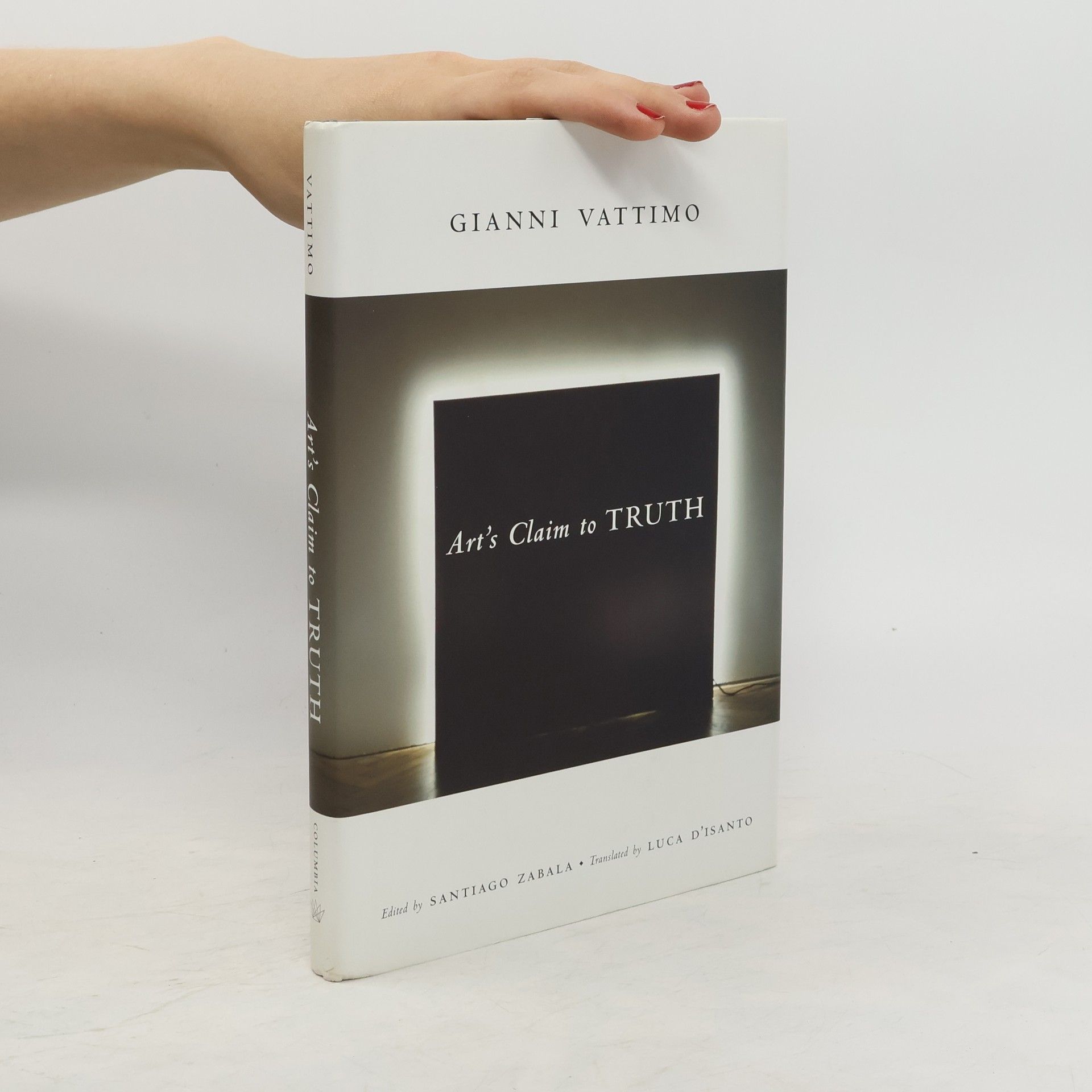Being at Large
- 200pages
- 7 heures de lecture
A hermeneutical exploration of freedom through existence, interpretation, and emergencies.
Santiago Zabala est un philosophe influent qui explore l'intersection de l'herméneutique et de la philosophie analytique. Son travail aborde fréquemment des questions ontologiques et épistémologiques, en particulier dans le contexte de la pensée post-métaphysique. Zabala se concentre sur la manière dont notre compréhension du monde est façonnée par le langage et l'interprétation. Ses écrits se caractérisent par une profonde réflexion et une volonté de jeter des ponts entre les traditions philosophiques.


A hermeneutical exploration of freedom through existence, interpretation, and emergencies.
First collected in Italy in 1985, Art's Claim to Truth is considered by many philosophers to be one of Gianni Vattimo's most important works. Newly revised for English readers, the book begins with a challenge to Plato, Aristotle, Kant, and Hegel, who viewed art as a metaphysical aspect of reality rather than a futuristic anticipation of it. Following Martin Heidegger's interpretation of the history of philosophy, Vattimo outlines the existential ontological conditions of aesthetics, paying particular attention to the works of Kandinsky, which reaffirm the ontological implications of art.Vattimo then builds on Hans-Georg Gadamer's theory of aesthetics and provides an alternative to a rationalistic-positivistic criticism of art. This is the heart of Vattimo's argument, and with it he demonstrates how hermeneutical philosophy reaffirms art's ontological status and makes clear the importance of hermeneutics for aesthetic studies. In the book's final section, Vattimo articulates the consequences of reclaiming the ontological status of aesthetics without its metaphysical implications, holding Aristotle's concept of beauty responsible for the dissolution of metaphysics itself. In its direct engagement with the works of Gadamer, Heidegger, and Luigi Pareyson, Art's Claim to Truth offers a better understanding of the work of Vattimo and a deeper knowledge of ontology, hermeneutics, and the philosophical examination of truth.